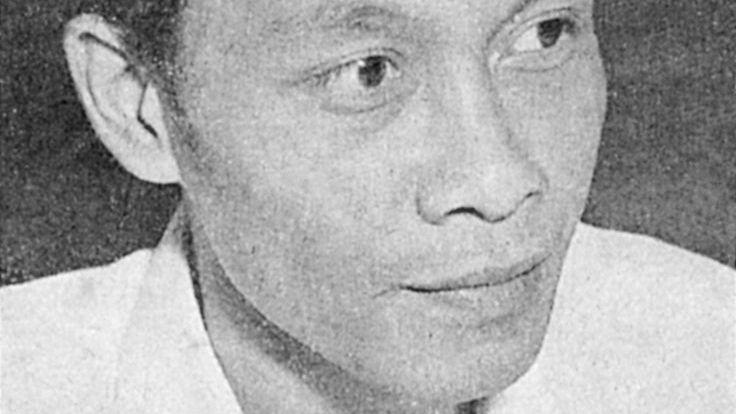Tan Malaka: The Nation’s Unsung Hero
- Denisa Mayari
- Mar 28, 2023
- 4 min read

An influential figure in the fight for Indonesian independence, Tan Malaka (1897–1959) was a Marxist, philosopher, and patriot of Minangkabau descent. He pushed for a unified, socialist republic in Indonesia in his many publications. His works on Indonesian history and politics include the book "Naar de Republiek Indonesia," which is widely considered to be where Tan Malaka coined and proposed the name "Indonesia."
Several regional names, including "Nusantara," "Malay Archipelago," and "East Indies," were commonly used to refer to the islands before the word "Indonesia" became commonly used. Tan Malaka countered that these names failed to reflect the diversity of the islands' inhabitants and their shared culture. Tan Malaka, in "Naar de Republiek Indonesia," recommended the word "Indonesia" as a means of referring to the entire archipelago and its people as a single, unified nation. He chose the name by combining the Greek words for "India" (Indos) and "island" (Nesos), which he thought aptly described the area's geographical position and cultural make-up. Among Indonesian nationalists, Tan Malaka's idea found popular favor and was ultimately chosen as the official name of the newly independent Republic of Indonesia in 1949.
Tan Malaka was one of Indonesia's most important thinkers. His writings and speeches about Indonesian nationalism and socialism had a big impact on the independence movement. Soekarno, the first president of Indonesia, was one of the many influential people who were motivated by his example. In addition to his crucial diplomatic role, he was also a major player in the independence movement and the subsequent negotiations and fights that saw Indonesia declare its independence from the Netherlands. Supposedly, Soekarno's political philosophy and strategy during the independence movement were shaped by Tan Malaka's writings and ideas. Soekarno was heavily influenced by Tan Malaka, who shared his views on the necessity of a socialist, unified Indonesia and on the centrality of national culture and identity.
In comparison to Tan Malaka, Soekarno did not fully adopt Marxist ideology, but he did absorb some of its concepts into his own political ideology. This was known as Nasakom (an abbreviation of "Nationalism, Religion, and Communism"). Tan Malaka's call for anti-imperialism and socialism to form the bedrock of Indonesian nationalism had a major impact on Soekarno. The political theory Soekarno developed, which he named "Pancasila," drew heavily on these sources. Although Soekarno was undoubtedly his own person with his own political ideals, the lasting impact that Tan Malaka had on him is undeniable. On March 28, 1963, Soekarno issued Presidential Decree No. 253/1963, designating Tan Malaka as a National Hero of Indonesia. Keep in mind that the dynamic between Tan Malaka and Soekarno, two pivotal figures in Indonesia's independence fight, was ultimately complex and dynamic, not constantly positive or negative.
During his lifetime and in the years following his death, Tan Malaka's contributions to Indonesian nationalism and socialism were frequently forgotten or dismissed, earning him the title of an "unsung hero." The legacy of Tan Malaka, who played a crucial part in the Indonesian independence movement and wrote extensively on Marxist theory and anti-imperialism, was stifled and obliterated by Suharto’s dictatorship. The New Order regime saw Tan Malaka, a prominent Marxist thinker and patriot, as a threat because of his ideals and legacy. From 1967 until his death in 1998, Soeharto presided over an Indonesia that actively worked to suppress communist and socialist movements in lieu of a more conservative, pro-Western stance. This was a piece of a larger anti-communist movement that gained traction in Indonesia after the 1965 revolution that toppled Soekarno and brought power to Suharto’s New Order dictatorship. Because of his unyielding attitude on political matters and his propensity to work independently of established political organizations or parties, Tan Malaka is also often referred to as a "lone wolf." He was highly critical of the elitism he witnessed among leaders and academics, and he favored a mass-led revolution to achieve independence and social justice.
During Soeharto's presidency, many of Tan Malaka's works were outlawed, and his role in shaping Indonesia's political and historical landscape was downplayed or even erased completely. It wasn't until after Suharto’s downfall in 1998 and the following democracy in Indonesia that Tan Malaka's thoughts and achievements were rediscovered and celebrated. While he never held an official post in the Indonesian government, Tan Malaka remained a significant figure in the country's politics. He has been lauded by some for his fierce individualism and groundbreaking idealism, while others have condemned him for his belligerence and violent approach. Though his ideals were controversial and the public's opinions towards him may have been and remain divided, there is no denying that he was a revolutionary and a catalyst for change.
Overall, Tan Malaka's writings and ideology influenced and transformed Indonesian politics, serving as an inspiration to generations of left-leaning and nationalist activists. Many progressive organizations and think tanks in Indonesia can trace their inspiration to him, and he is now widely recognized as an important figure in the past and present political landscape of Indonesia and beyond. The socialist and anti-colonial movements in neighboring Asia-Pacific countries have been influenced by Tan Malaka's writings and ideas. Although Tan Malaka was barely ever formally recognized for his efforts to promote social justice and national independence, his legacy lives on in the hearts and minds of countless people long after his death.


.png)



Comments